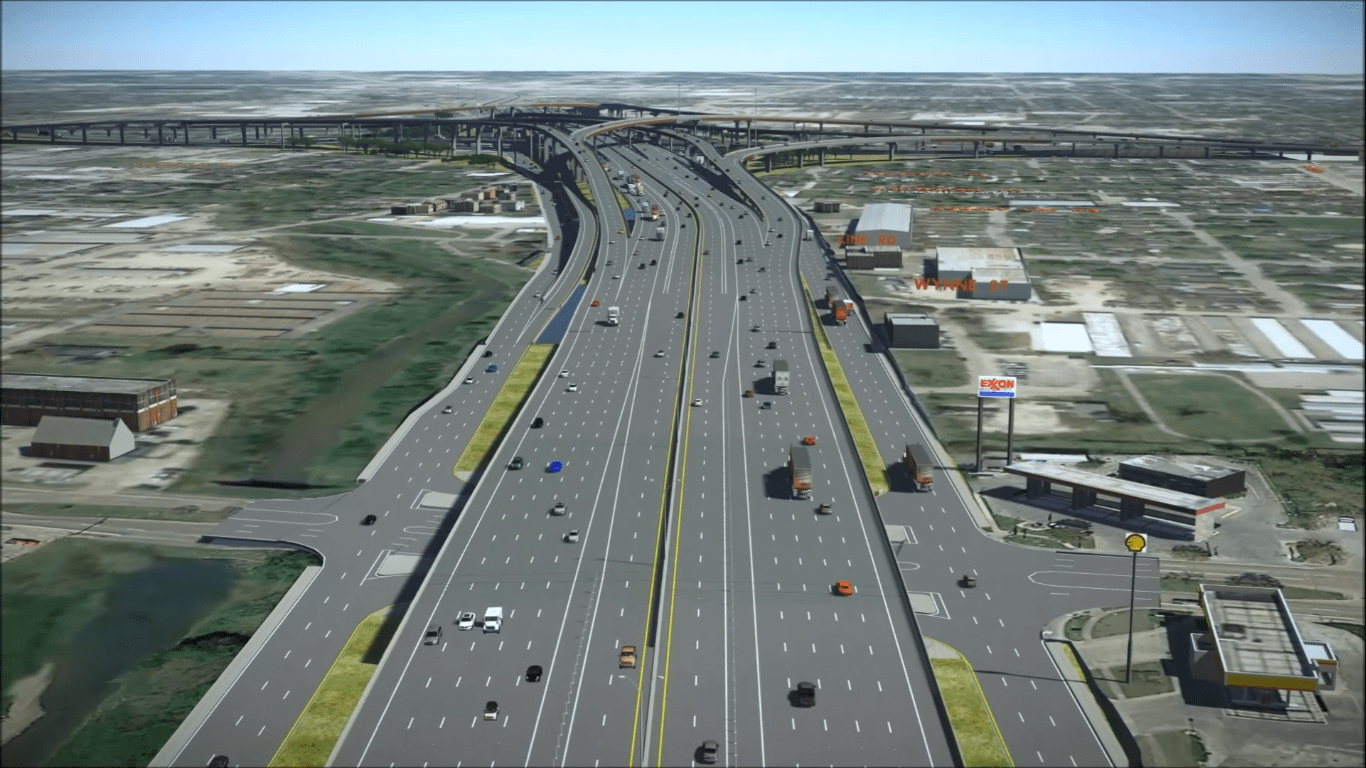In this year's installment of its annual "Highway Boondoggles" report, Gideon Weissman of Frontier Group and Matthew Casale of U.S. PIRG Education Fund deliver a stark warning about the billions of dollars states spend on unnecessary highways that fracture our cities, deprive transit of scarce funds, and pollute our environment. Below is the second of nine installments detailing case studies of these harmful roadways: a massive highway project in Houston that would displace residents and destroy businesses, while sucking billions of dollars from transportation priorities.
Houston, the nation’s fourth-largest city, is fast-growing and sprawling, and as of 2012 had more highway lane-miles per person than all but two cities in the country. The city’s over-reliance on cars has created big problems for residents. Long trips on congested highways mean that Houston workers have America's second-most expensive commutes.
The metro area’s roads are also the deadliest in the nation, and according to the Houston Chronicle, the “death toll is the equivalent of three fully loaded 737s crashing each year at Houston's airports, killing all aboard.” Vehicle pollution is also harming air quality in Houston, which in 2019 was ranked ninth-worst in the country for high smog days by the American Lung Association.
Improving Houston’s transportation system means reducing reliance on cars. But today state officials are moving forward with a massive and expensive project that would result in more concrete and asphalt through the middle of Houston.
The North Houston Highway Improvement Project would involve widening and rebuilding nearly 25 miles of highway and numerous interchanges, with much of the project taking place in the middle of the city. As the Chronicle wrote, the “most radical changes come downtown, where relocating I-45 to the central business district’s east side also means remaking every freeway it touches — Interstate 10, Interstate 69 and Texas 288.” And the project comes with the high price tag of $7 billion before even accounting for right-of-way costs.
The miles of new highway created by the project will widen barriers between neighborhoods, crisscross parkland, and make transportation more difficult for commuters without access to a car. The project will require expanding the right-of-way of the existing highway by hundreds of feet. Some sections through downtown Houston will grow from 220 feet to 570 feet, resulting in highways nearly as wide as the length of two football fields.
Communities could benefit from green spaces built on caps over sunken sections of highway. However, as the project’s Draft Environmental Impact Statement notes, the “green space cap is conceptual and not part of the proposed project, and it would require separate development and funding.”
The state’s own documents contain stark language on the harm that the project will do to Houston’s communities:
- The project’s “proposed recommended” routes would displace four houses of worship, two schools, 168 single-family homes, 1,067 multifamily units and 331 businesses with 24,873 employees. “Potential impacts to community resources include displacement of residences and businesses, loss of community facilities, isolation of neighborhoods, changes in mobility and access, and increased noise and visual impacts. . . All alternatives would require new right-of-way which would displace homes, schools, places of worship, businesses, billboards, and other uses.”
- “All [build] alternatives would result in displacements that would reduce the size of the communities and potentially affect community cohesion… Proposed alternatives that include elevated structures may create physical barriers between neighborhoods or affect the existing visual conditions of the communities.”
- The project’s “[c]onversion of taxable property to roadway right-of-way and displacements of businesses that are significant sources of sales tax revenue would have a negative impact on the local economy.” And while at present the downtown area and surrounding neighborhoods “are experiencing various degrees of redevelopment,” the state notes that “growth trends indicate redevelopment would continue independent of the proposed improvements to project facilities.”
- The project will “cause disproportionate high and adverse impacts to minority or low-income populations.” And the project’s “[d]isplacement of bus stops could affect people who do not have access to automobiles or that are dependent on public transportation.”
Even as it harms Houston, the project will also likely fail to achieve its basic goal of reducing congestion. When it comes to congestion impacts, Houston can look to its own Katy Freeway as an example of the phenomenon of induced demand. Following that highway’s $2.8 billion widening, 85 percent of commute times actually increased.
Even as the project would reinforce Houston’s dependence on cars, some parts of Houston’s own local government are working for the opposite goal. Houston’s Complete Communities program is working to improve neighborhoods, including with programs for safer streets and bike lanes. The city’s Walkable Places project is working to “create more vibrant, walkable streets that support alternative modes of transportation.” And Houston is creating big plans for a fast and reliable transit system for the future.
Houston can achieve a more sustainable, affordable, and better functioning transportation system – but only by avoiding harmful and costly expenditures like the North Houston Highway Improvement Project.






